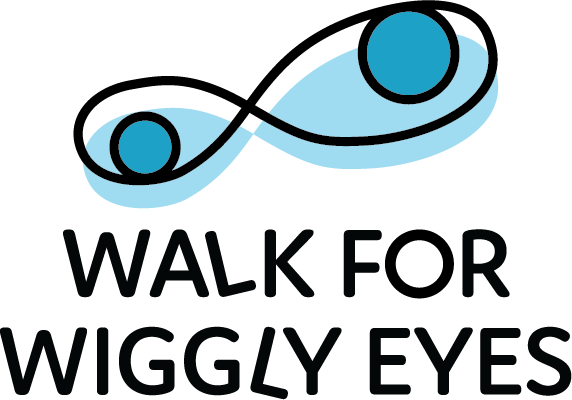What is it like living with nystagmus?
I was born with Congenital nystagmus (CN). To the non-doctor folks out there, for me that means my vision is blurry, and my eyes or head shakes from side to side.
My vision has always held me back in life. I did struggle to read the white board at school, college and university. I struggle to recognise faces from a distance (and it doesn't have to be that far), and I also struggle to see facial cues or other gestures people may be making. And trust me squinting at girls to see what, if any, facial cues they might be giving you is never attractive. I can't read signs or menus unless I'm holding them in my hand. I cannot drive, and I struggled at ball sports. If you wanna beat me at tennis, take me to a tennis court that is surrounded by lush green trees, bushes and grass, and I guarantee you that I won't see that small green tennis ball until it's gone past me.....if it hasn't already hit me.
"Oh Mike, look at the eagle over there".....I'd save your breath if I was you, I promise you that I more than likely didn't see it.... although that doesn't mean that I won't say that I did see it to save everyone's embarrassment.
My head shaking causes some social embarrassment. If I'm listening to people quite intensely, they can quite often get the impression that I am disagreeing with them, which has led to some misunderstandings and issues over the years. I have been kicked out of or not allowed into pubs/clubs due to the bouncers believing that I was high on drugs. Sometimes when I put my head on the pillow to sleep at night, I constantly get a noise deep in my ear, as my head keeps shaking into my pillow. If my head’s not shaking, my eyes usually are, and vice versa.
People with nystagmus can suffer with, but are not limited to, any of the following.
· Headaches/migraines
· Dizzy spells
· Depth Perception issues – when seeing a line or different paving they can have issues identifying if it’s a step, as well as struggles to see if people, balls or cars are moving
· Struggle to read text
· Cannot drive
· Bloodshot and strained eyes, in some cases daily
· Struggle to do simple tasks without help from someone else (such as tying slow laces, buttoning up jackets etc.)
· Struggle or unable to fix eyes on or focus on text or an object for a period of time
· Sensitive to light
· Unable to recognise people from a distance, and even if people are close it’s hard tell the difference between people who have similar features
· Issues playing ball sports, struggling to see a fast moving ball.
· Toddlers can struggle to see things at a distance, sometimes from as close as 6 metres.
· Toddlers can have issues walking around places they have never been to before as they are unsure and struggle to clearly make out depth, floor surfaces etc.
· Toddlers can also struggles a little with busy places, so places like soft play parks where other children are running around , they can get upset and/or shy away.
Depending on the person, these issues can worsen or improve during a person’s life, but as mentioned before, there is currently no cure for nystagmus. So some people with nystagmus try to adopt techniques to cope with these issues or to help make their lives easier or more bearable. But unfortunately, some people suffer so much that no techniques or preventatives are helping them with their issues.
This information was collected from the Facebook network group Nystagmus Network. This is a group of extremely supportive people who share their experiences, concerns and events around nystagmus. It is a group of normal people, going about their usual daily lives, all mixes of people, from every corner of the globe, all with one common thing: they or someone they know is living with nystagmus.
This information was also obtained from my own personal experiences of living with nystagmus.
Victoria Flecther has also written a great article on English television presenter, producer, comedian, director and novelist, Richard Osman and his experiences of living with nystagmus.

